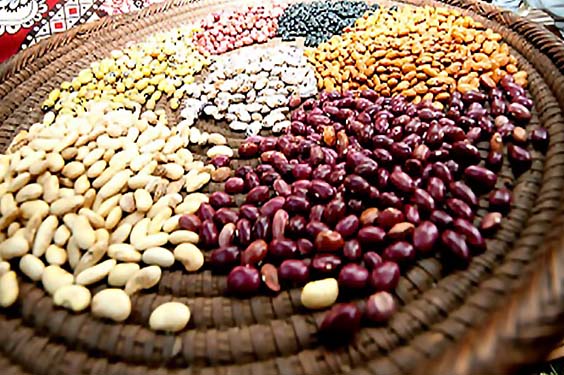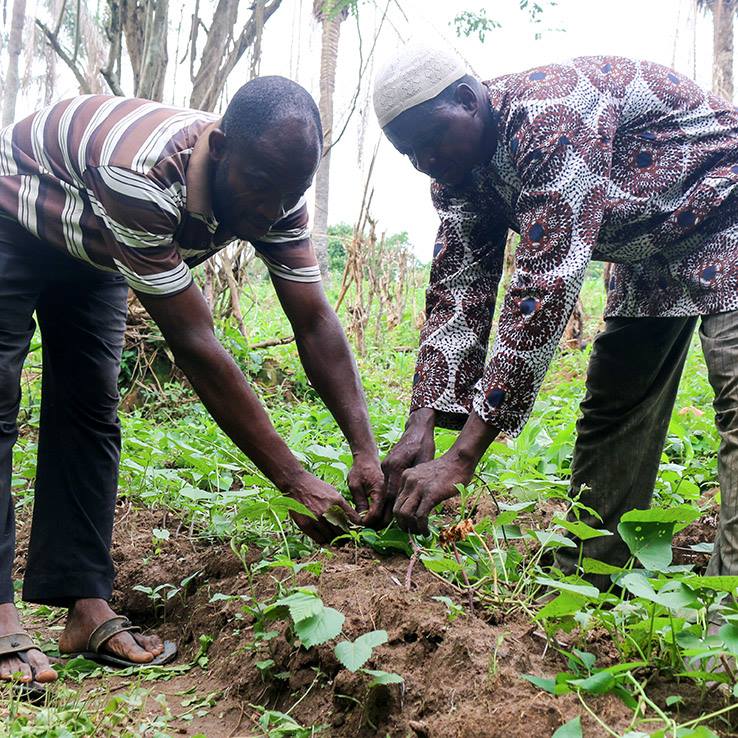Almost a quarter of Sub-Saharan Africans suffer micronutrient malnutrition, or “hidden hunger”, a condition that disproportionately affects women of reproductive age, infants and young children. Deficiencies of essential micronutrients such as vitamin A, iron and zinc can cause an array of health problems and, in some cases, early death.
Together with partners, CIP leads a CGIAR initiative funded by The Bill and Melinda Gates Foundation called Building Nutritious Food Baskets (BNFB) that uses a multi-crop (food basket) approach to promote four biofortified crops in Nigeria and Tanzania: orange-fleshed sweetpotato, vitamin A cassava, vitamin A maize and high iron beans. The three-year project has brought together CIP, the International Center for Tropical Agriculture, the International Maize and Wheat Improvement Center, the International Institute of Tropical Agriculture, HarvestPlus, the Forum for Agricultural Research in Africa, the Governments of Nigeria and Tanzania, and national partners to test a model for scaling up the production and utilization of biofortified crops based on the hypothesis that the success of scaling up is dependent on a supportive policy environment, strong institutional capacities and proven technologies.
“We want to start with biofortified crops that are available and begin to demonstrate how to scale up to reach the target population,” said Dr. Adiel Mbabu, CIP regional director for SSA and BNFB project advisor.
The research centers and their partners also strengthen the capacity of national institutions and communities by using a sustainable, step-down model that allows them to take ownership and drive their own agenda. By the end of 2016, 192 change agents, including 45 women, had been trained in the design and implementation of gender sensitive programs to get more farmers growing biofortified crops. At the same time, the project works with the public and private sectors to ensure that there is a sustainable supply of seed for the biofortified varieties promoted.




